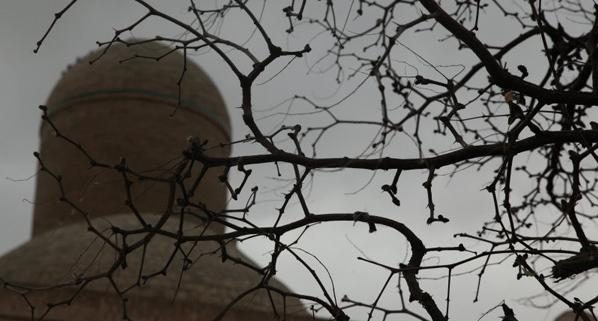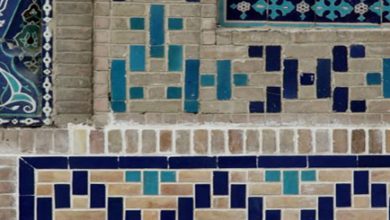SALEH AS

HOMES IN THE MOUNTAINS
The tribe of Thamud lived in the Arabian Peninsular, between Hijaz and Tabuk. They were of Arab origin and were the successors of the people of ‘Ad. Not having learnt from their predecessors, they were a haughty race, and one of the things that they were known for was their astonishing skills in architecture. Unlike their ancestors who built their homes and monuments on top of mountains, the people of Thamud topped the ability of the tribe of ‘Ad, and built their homes inside the mountains, where they hewed, carved and engraved into the mountains. By some accounts, they possessed such longevity that their mud brick houses would crumble into ruins during their lifetime, necessitating the more innovative and permanent form of accommodation.
“…And remember when He made you successors after the ‘Ad and settled you in the land, [and] you take for yourselves palaces from its plains and carve from the mountains, homes.” (7:74)
Their dwellings were lush and abundant with fountains, date palms and plantations. However, instead of crediting Allah for all the bounties they enjoyed, they became arrogant with their wealth and skills. Like their predecessors, the people of ‘Ad, they allowed Shaitan to decorate their worldly activities and made them feel secure that their achievements would fortify them from the forces of Allah. They were self-satisfied; arrogant to the extent that they thought themselves beyond the retribution of their Creator. Instead of worshipping Allah, the people of Thamud worshipped life and their abilities.
The cycle of human nature repeated itself, and they indulged in the practice of idol worshipping. As with the previous communities, there was a lack of knowledge, which led people to be steeped in the arrogance and forgetfulness of Islam. It was to this community that Saleh AS was sent.
The Da’wah of Saleh AS
The message of Saleh AS can be summarised by the following timeless message, the one that will stand until the end of time. It is “La Ilaha Illallah” – the denial and negation of all except Allah, the one God. He tried to convince the people of Thamud to worship only Allah, reminding them of their humble origins, as beings created from the earth. He implored them to ask for forgiveness of their Lord, to fear Allah and to obey the Message. He tried to persuade them to cease their wrongdoing and corruption; and to desist from obeying the bidding of the transgressing people. He reminded them that he was not expecting any form of reward from them should they obey his message, for his reward lay with Allah alone. Like all the Prophets and Messengers, his mission was to bring his people to salvation; he was sent to the community to benefit them, rather than to benefit himself. Like all Prophets and Messengers who came before and after him, the core of the message was the same.
He reminded them that as successors of ‘Ad, it was incumbent upon them to choose the correct path and way of life. He pointed out that all their magnificent dwellings and lush agriculture should not make them feel secure against Allah. He tried, with all the gentle manners befitting of Prophets and Messengers, to make them attribute all their skills and mastery in their architectural and agricultural achievements to Allah, and to therefore to be grateful to Him by acting in accordance with His divine guidance. Underlying this message was the grim reminder of the grave consequences that befell the people of ‘Ad, a fate that the Thamud community should try to avoid.
The people of Thamud were suspicious of his message, and refused to be persuaded by him. They clung on stubbornly to the idolatry of their ancestors, and accused Saleh AS of being bewitched. They reasoned that since he was a human being like themselves, he was required to produce a clear miracle to support the veracity of his prophethood. As with all disbelieving communities who asked for signs, they were too rooted in their falsehood, and their spiritual blindness would inevitably lead them to reject any sign placed before them, no matter how convincing.
Were their request to be granted, the Thamud would position themselves at peril and subject themselves to a great trial. For once an irrefutable sign had been produced, they would not have any further excuse for rejecting the divine call, and the consequences on them for any continuing disbelief would be catastrophic. Saleh AS tried to convince them of this for their own self preservation, but the people still pressed him for a miracle, giving him an ultimatum and calling him a liar if he was unable to produce one. “So bring a sign if you are truthful” (26:154), they demanded.
The She-Camel
It is said that the people of Thamud, during one of their assemblies, pointed towards some rocks and challenged Saleh AS to produce a large female camel and its baby, each with certain peculiar and unique characteristics. Concerned about the implications upon the community, Saleh AS asked whether, if he responded positively to their demand, they would accept him as a Messenger of Allah. They agreed, and upon that covenant, Saleh AS offered prayers to Allah and asked Allah to produce the camel of the qualities that they had described.
The people of Thamud watched in astonishment as a female camel and its baby matching their description emerged from the rocks. Yet, even in the face of such unquestionable proof, most of the community still disbelieved. “The chiefs of those who behaved arrogantly among his people said to those who were considered weak from those who believed: ‘Do you know (believe) that Saleh is sent by the Lord? They said: ‘Indeed, we believe in the Message with which he has been sent.’ Those who were haughty said: ‘We certainly disbelieve in what you believe.” (7:75-7:76)
With the camels, a great trial descended upon the community – for the she-camel was to be permitted to graze wherever she pleased. “And do not harm her, lest you be seized with a chastisement of a grievous day,” (26:156) Saleh AS warned them.
The people of Thamud were only allowed to utilise the well on alternate days. Allah ordered: “She shall have her portion of water, and you shall have your portion of water on an appointed day.” (26:155)
The camel was sent as a trial to the people of Thamud to test their sincerity and patience. “We shall send the she-camel as a trial for them. So watch them and bear patiently. And inform them that the water is to be shared between them and her, each one will have his drink in turn.” (54:27 – 54:28)
This was proof of Saleh’s AS prophethood, which the people continued to deny. The stand-off had to come to an end. Eventually, nine of the elite townspeople conspired to take matters into their own hands and kill the she-camel. They did not take heed of Allah’s warning, evidencing their continuing disbelief despite witnessing the miracle with their own eyes. “And there were in the city nine family heads causing corruption in the land and not amending [its affairs].” (27:48) These nine appointed a killer to perform the deed, and they persuaded the rest of the tribe to join in their diabolical plan. When the time came, they hamstrung her and then the appointed killer did his job.
Not being content with this, they also plotted to secretly attack Saleh AS and his household in the cover of the night and then deny the murder. They said: “Swear one to another by Allah that we shall make a secret night attack on him and his household, and afterwards we will surely say to his near relatives: ‘We witnessed not the destruction of his household, and verily! We are telling the truth.'” (27:49)


![Photo of ADAM AS [ PART 1]](/wp-content/uploads/2020/09/d6086de322f98f66cc694f32ea284557_XL_0-390x220.jpg)
![Photo of ADAM AS [ PART 2 ]](/wp-content/uploads/2020/09/106117794.Gu9ZCkGy-390x220.jpg)
![Photo of NUH AS [ PART 1]](/wp-content/uploads/2020/09/130243396.pTC5gkej-390x220.jpg)